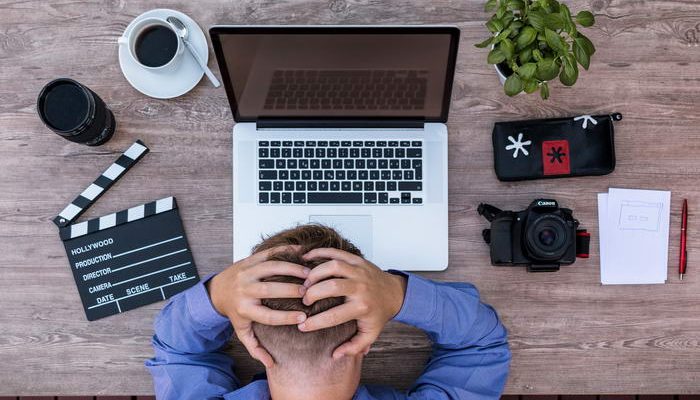The human mind is an intricate maze, full of emotions, thoughts, and reactions. At times, this complexity gives rise to certain irrational fears known as phobias. Unlike the regular fear of spiders or heights that many experience, phobias take this fear to an extreme level. They are powerful, overwhelming, and can often interfere with a person’s daily life.
A phobia, at its core, is an intense and persistent fear of a specific situation, activity, or object, even when little to no actual threat exists. Imagine being paralyzed with fear at the sight of a feather or the thought of crossing a bridge, irrespective of its size or sturdiness. These aren’t mere exaggerations; they are the lived experiences of many.
While the origins of these phobias can be traced back to traumatic experiences or cultural beliefs, they aren’t always apparent. The symptoms can vary from individual to individual. Commonly, individuals suffering from a phobia might experience dizziness, shortness of breath, rapid heartbeat, and an overwhelming desire to escape the situation causing the phobia. In some severe cases, just thinking or talking about the feared object or situation might trigger anxiety attacks.
If there is one thing that unites us all, it is being afraid of something. Pretty much everyone without exception has at least one thing that they’re scared of and will run a mile from. While things like spiders and snakes are pretty common, some of the phobias out there are a little more obscure. If you do suffer from one of the more unusual phobias out there, don’t worry – you’re not alone! However strange yours may be, there is always another one out there that is just as terrifying for someone.
We take a look at the ten most obscure and unusual phobias people can suffer from:
10 – Deipnophobia
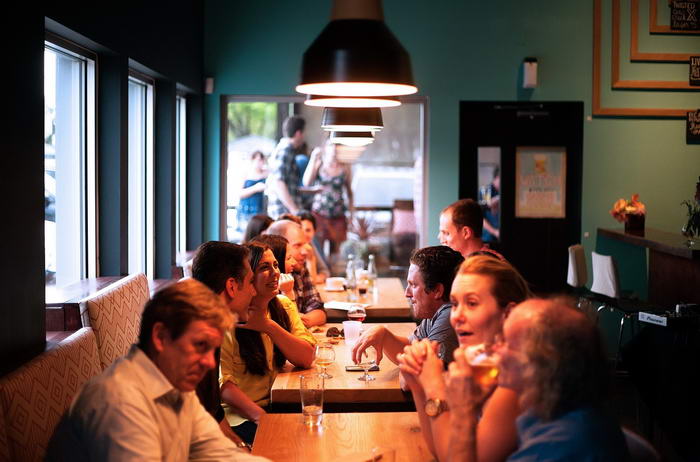
For most people, the joy of eating food is sharing the experience with others. Whether it is a romantic meal with a partner or a big family meal, enjoying food together is a good thing for the majority of the population. This is not true if you have Deipnophobia though!
This phobia is the phobia of dining with other people, dinner-time conversations or social interaction. It is though that this is caused by a bad experience at a meal-time, usually in childhood but sometimes in adulthood as well if something like an important business lunch has gone wrong previously. Anyone who suffers from this prefers to eat alone and in silence!
Understanding what is deipnophobia is just the beginning; addressing it is where the real challenge lies. Fortunately, like many other phobias, deipnophobia treatment exists. Cognitive Behavioral Therapy (CBT) has proven effective, helping sufferers change negative thought patterns and equipping them with skills to cope in dining situations. Exposure therapy, where individuals are gradually introduced to dining environments and conversations in controlled settings, can also be beneficial. In some cases, relaxation techniques and medications can be used to alleviate anxiety symptoms.
09 – Oenophobia
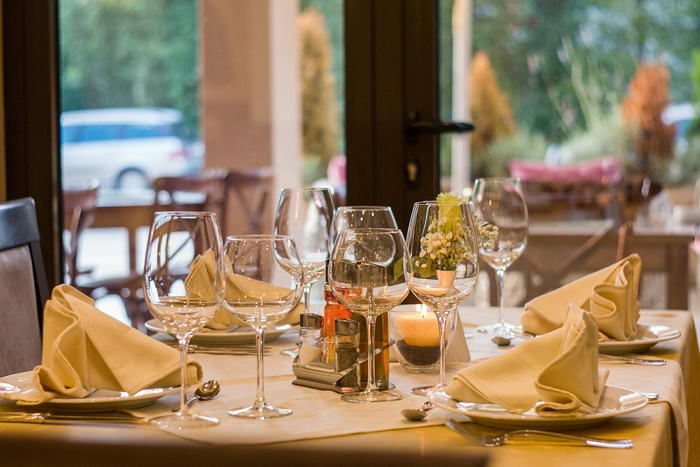
This is quite an unusual one as it is the phobia of wine. This includes everything about the drink from actually imbibing it to merely seeing it on a supermarket shelf. People with this phobia cannot even look at a bottle of vino without feeling anxious, short of breath and out of control mentally. Although it is easy to think this is quite simple to avoid, wine is everywhere and quite hard to swerve.
If you go out for a meal, someone will probably have a glass at least on the table and a trip to the shops is tricky as most will have whole shelves devoted to the drink. The standard treatment for this is behavioural therapy which will adjust the sufferer’s behaviour to be able to handle at least seeing a bottle of wine.
08 – Mageirocophobia
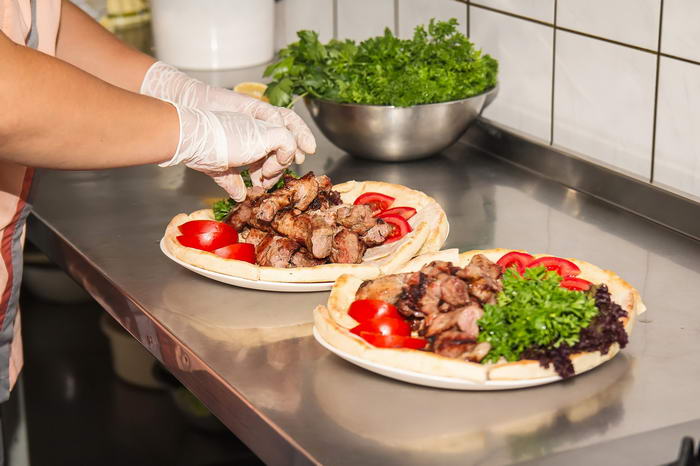
Millions of people all over the globe love cooking and rustling up new recipes for friends and family. If you have Mageirocophobia though, this is your worst nightmare! If you suffer from this fear then you simply cannot stand the thought of cooking or being in the kitchen.
There are many underlying reasons for this phobia from the fear of poisoning people with the food you make or not wanting to do all the cleaning up afterwards. Whatever the root cause, this phobia can be very bad for your health as you end up eating takeaways all the time!
07 – Ergophobia
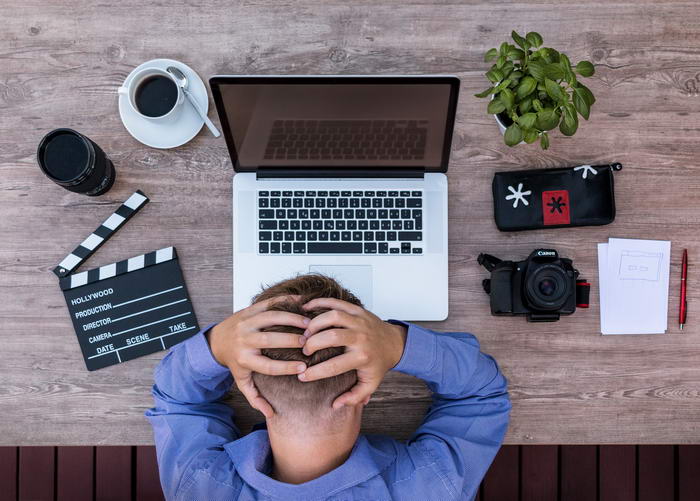
This phobia is quite a controversial one as it is the fear of work or finding employment. Now some may call that plain laziness but it is actually a recognised condition. The root causes can be concerns around safety in the workplace, social interaction with others or performance anxiety and these then lead to the actual condition of Ergophobia.
As with most phobias, the best approach to curing this phobia is behavioural therapy. By slowly being in the workplace, behaviour modification techniques are used to allow sufferers to reduce the anxiety they feel and be able to cope better.
06 – Nomophobia
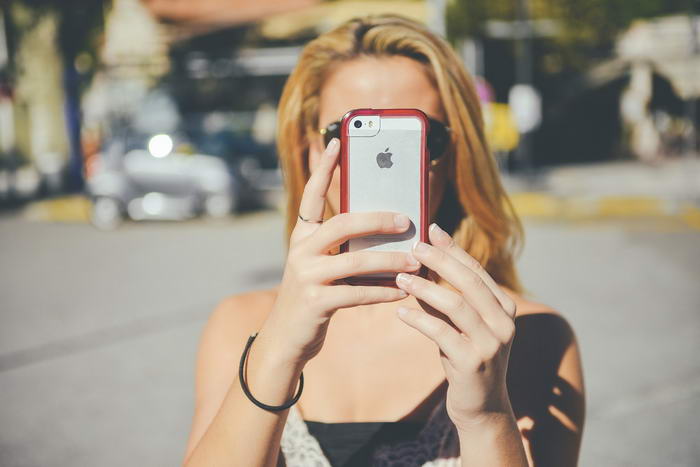
If ever there was a fear or condition that summed up the modern world it’s this one! Nomophobia is the anxiety that people feel around not being able to use their mobile phone or not having service on their phone. Sufferers are certainly not the type to live in the country where mobile phone signals can be very up and down!
Traditionally anyone who suffers from this will feel very anxious and stressed when not being able to use their phone. Other symptoms include agitation, shortness of breath and perspiration which is very unpleasant for people with Nomophobia to experience. With it being a recent phobia, treatment is in its initial stages but usually cognitive-behavioural psychotherapy.
05 – Somniphobia
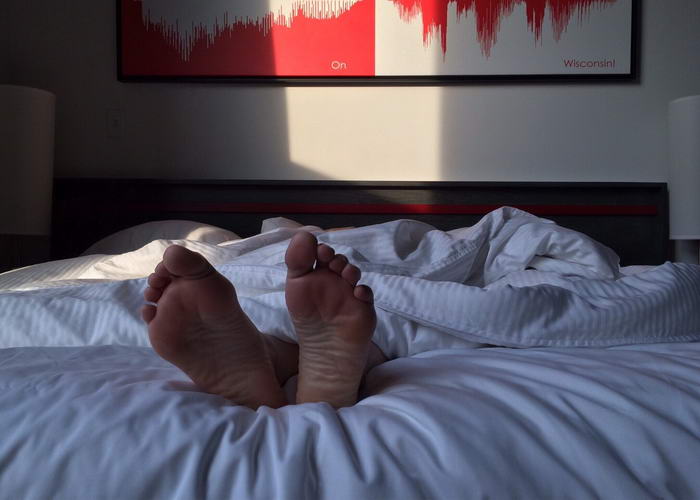
Anyone who has Somniphobia will likely be very tired and weary as it is the fear of going to sleep. Sufferers are afraid of dropping off due to irrational thoughts of not waking up or the nightmares they may experience while asleep. All this adds up to them fighting sleep and dreading going to bed or night time.
This is a very serious condition that needs treating as sleep is very important for our overall health. If you don’t get enough shut-eye then you will not be able to function properly or go about your daily life. Luckily anyone who has Somniphobia can see their Doctor to have it diagnosed and treated properly.
04 – Heliophobia

Do you dread going out into the sun or bright light? Prefer to stay indoors with the blinds shut? Fear not, you aren’t a vampire but simply have Heliophobia. This is the fear of going outside into the sunshine or bright lights and is obviously a very debilitating condition to have. Although if you live in the UK maybe not so much with the amount of rain there!
Causes of this phobia can be traumatic past events such as getting severe sunburn and this then translates into the irrational phobia developing. It can also be an overreaction to the advice around avoiding skin cancer by not spending too much time in the sun. Some people with Helophobia will cover up with long clothing and even carry a parasol around at all times to be able to function in everyday life.
03 – Haphephobia
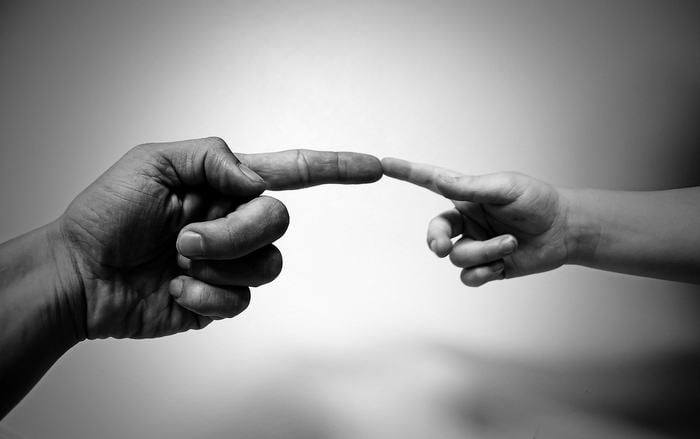
Haphephobia is the dread of being touched by people or touching someone else. This can be strangers although if the phobia is extreme it can be family or friends too. The main cause of this phobia is the protection of one’s personal space or the fear of being contaminated by other people.
Some people are born with this condition although others develop this after a bad experience in their past, either when young or later in life. Treatment for this condition can be cognitive or behavioural therapy which can hopefully help sufferers overcome this.
02 – Cibophobia

Along with chocolate, this is one of the more unusual phobias and is certainly the most serious to suffer from. Cibophobia is the fear of some or all food and therefore eating too and can quickly spiral into more serious disorders like anorexia. Indeed, Cibophobia can sometimes be wrongly diagnosed as anorexia as sufferers don’t eat as they are simply afraid of food.
If the type of Cibophobia is related to certain foods, this is still serious as it leads to a restricted diet which is bad for the bodies overall well-being. If anyone does have this phobia, a visit to the Doctor is needed quickly to help resolve and stay safe.
01 – Xocolatophobia

This is surely the most unusual phobia out there – after all who doesn’t love chocolate?! Many of us can’t comprehend not being able to enjoy this beautiful food product but for people with Xocolatophobia this is the case. They simply cannot bear chocolate and will go to any lengths to avoid it.
You have to feel sorry for anyone with this phobia as it is practically impossible to avoid chocolate wherever you go and certainly when it comes to something like Valentine’s Day or Easter. Even going to work can be a problem as some co-workers will always have a bar or two on their desk. In extreme cases, sufferers can even have to wash their hands after touching chocolate as they believe it to be unclean.
Although some of the more obscure phobias are easy to laugh at, there are some that are more serious that can blight people’s lives or cause health problems. Anyone who suffers from a phobia, whichever one it is, deserves sympathy and will hopefully one day find the strength to overcome it and live a normal life.
Treating the Terrors – Understanding Phobia Treatment
The powerful grip that a phobia can have over an individual is undeniable. However, with advances in psychology and medicine, there’s hope for those looking to combat these intense fears. Phobia treatment primarily revolves around therapy, though medication can also play a supplementary role.
Cognitive Behavioral Therapy (CBT) is a leading approach when treating phobias. This method focuses on changing negative thought patterns and behaviors. It equips individuals with practical skills to manage their fear and reduce their avoidance of situations or objects that trigger the phobia.
Exposure therapy, a subset of CBT, involves gradually and repeatedly exposing individuals to the feared situation or object in a controlled setting. Over time, this reduces the fear response.
For some, medications might be used temporarily to treat severe symptoms. Beta-blockers, sedatives, and antidepressants can be effective but are generally prescribed for short durations.
Regardless of the treatment avenue explored, it’s essential to consult with a trained professional to understand and navigate the intricacies of individual phobias.
The Common Culprit: Identifying the World’s Most Prevalent Phobia
When the topic of phobias arises, many jump to spiders, heights, or confined spaces. However, surprising to some, the title for the world’s most popular phobia is held by social phobia, often referred to as social anxiety disorder. This fear revolves around social situations.
The sheer thought of being watched, judged, or being the center of attention can send shivers down the spine of someone with social phobia. Unlike general shyness, this phobia can severely hinder an individual’s ability to lead a normal life. Avoiding social interactions, fearing public places, or even evading everyday activities like eating in public becomes the norm.
The reasons behind the prevalence of social phobia are manifold. Modern society, with its emphasis on networking, social media presence, and instant communication, can exacerbate feelings of being constantly evaluated.
Incorporating behavioral therapies, social skills training, and, in some cases, medications, people suffering from social phobia can reclaim their lives, step by step, from the shackles of this pervasive fear.
*All images via pixabay


